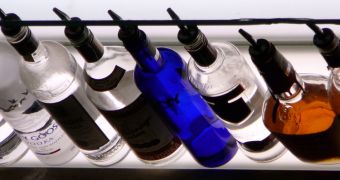University of North Carolina (UNC) scientists found in a new study that consuming a lot of alcohol may impair trauma recovery. Though the investigation was carried out on unsuspecting mice, the results may well hold for humans as well, the team argues.
What researchers discovered was that heavy alcohol consumption is responsible for a rewiring of the human brain in such a way that it becomes very difficult for drinkers to make a full psychological recovery after being exposed to a traumatic event or experience.
UNC experts argue that the mouse models used in the new study had been modified to more closely reflect the behavior of the human brain. Furthermore, in past studies, it was demonstrated that alcohol influences the development of several conditions, including anxiety disorders.
Doctors also know that alcohol is more likely to lead to persistent post-traumatic stress disorder (PTSD). In addition, people who drink more often are more likely to experience traumatic events, ranging from car accidents after driving under the influence to bouts of domestic violence.
Details of the new investigation were published in the latest issue of the top journal Nature Neuroscience. The paper was authored by UNC School of Medicine assistant professor of pharmacology, Thomas Kash, PhD.
“There’s a whole spectrum to how people react to a traumatic event. It’s the recovery that we’re looking at – the ability to say ‘this is not dangerous anymore',” adds the leader of the research team.
“Basically, our research shows that chronic exposure to alcohol can cause a deficit with regard to how our cognitive brain centers control our emotional brain centers,” Kash explains.
The senior author of the new investigation, National Institute on Alcohol Abuse and Alcoholism (NIAAA) scientist Andrew Holmes, PhD, adds that heavy alcohol abuse may in fact impair a critical neural mechanism involved in trauma recovery. This may lead to a higher risk of developing PTSD.
“The next step will be to test whether our preclinical findings translate to patients currently suffering from comorbid PTSD and alcohol abuse. If it does, then this could lead to new thinking about how we can better treat these serious medical conditions,” Holmes says.
The research team now plans to focus on the molecular links between anxiety and alcohol intake. They already have a few leads, and plan to follow through on them, PsychCentral reports.

 14 DAY TRIAL //
14 DAY TRIAL //